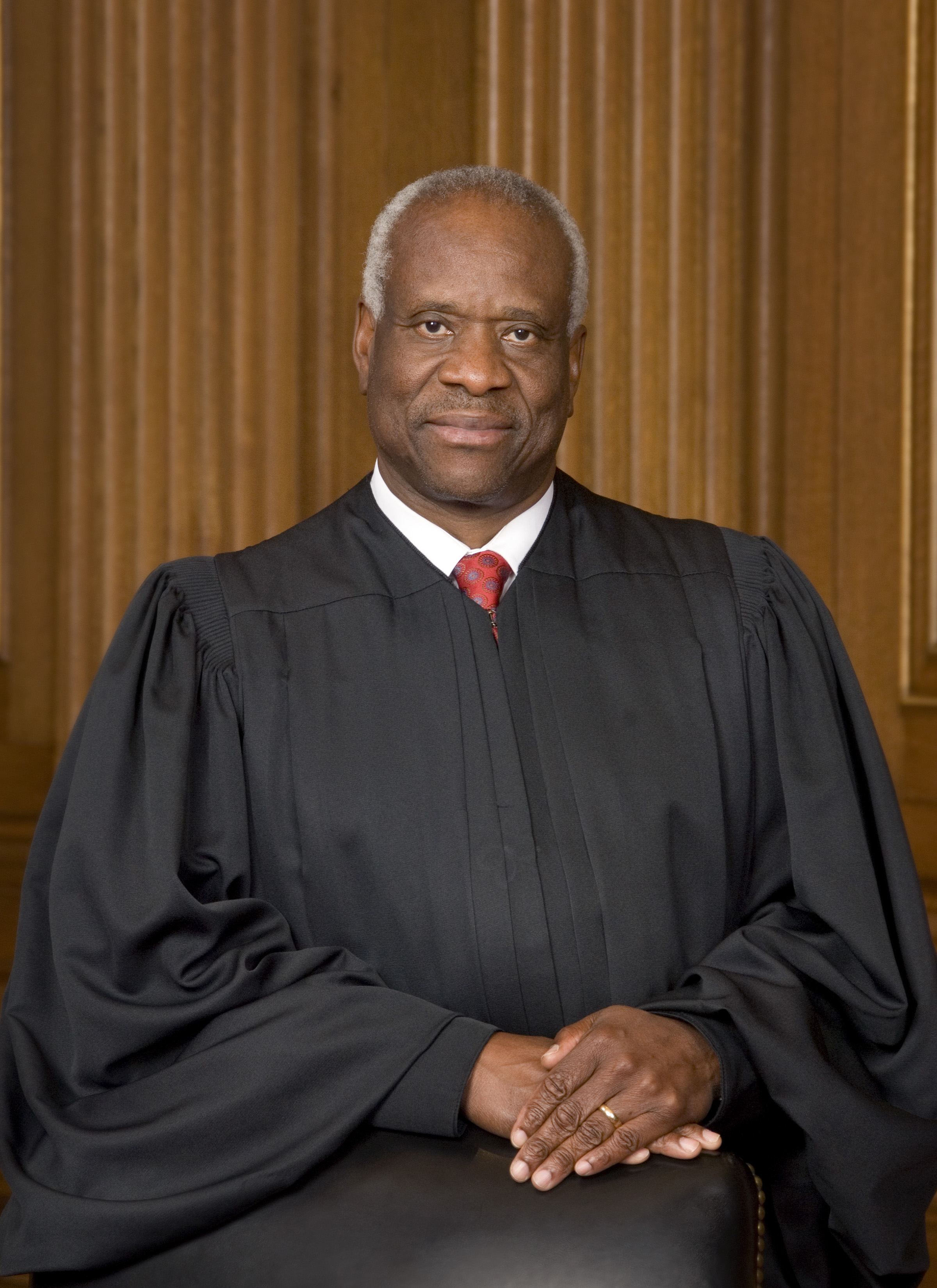Clarence Thomas
 Clarence Thomas (born June 23, 1948) is an American lawyer and jurist who serves as an associate justice of the Supreme Court of the United States. He was nominated by President George H. W. Bush to succeed Thurgood Marshall and has served since 1991. After Marshall, Thomas is the second African American to serve on the Supreme Court and has been its longest-serving member since Anthony Kennedy's retirement in 2018. Since Stephen Breyer's retirement in 2022, he is also the Court's oldest member.
Clarence Thomas (born June 23, 1948) is an American lawyer and jurist who serves as an associate justice of the Supreme Court of the United States. He was nominated by President George H. W. Bush to succeed Thurgood Marshall and has served since 1991. After Marshall, Thomas is the second African American to serve on the Supreme Court and has been its longest-serving member since Anthony Kennedy's retirement in 2018. Since Stephen Breyer's retirement in 2022, he is also the Court's oldest member.Thomas was born in Pin Point, Georgia. After his father abandoned the family, he was raised by his grandfather in a poor Gullah community near Savannah. Growing up as a devout Catholic, Thomas originally intended to be a priest in the Catholic Church but was frustrated over the church's insufficient attempts to combat racism. He abandoned his aspiration of becoming a clergyman to attend the College of the Holy Cross and Yale Law School, where he was influenced by a number of conservative authors, notably Thomas Sowell. Upon graduating, he was appointed as an assistant attorney general in Missouri and later entered private practice there. He became a legislative assistant to U.S. Senator John Danforth in 1979, and was made Assistant Secretary for Civil Rights at the U.S. Department of Education in 1981. President Ronald Reagan appointed Thomas as Chairman of the Equal Employment Opportunity Commission (EEOC) the next year.
President George H. W. Bush nominated Thomas to the United States Court of Appeals for the District of Columbia Circuit in 1990. He served in that role for 19 months before filling Marshall's seat on the Supreme Court. Thomas's confirmation hearings were bitter and intensely fought, centering on an accusation that he had sexually harassed Anita Hill, a subordinate at the Department of Education and the EEOC. The Senate confirmed Thomas by a vote of 52–48, the narrowest margin in a century.
Since the death of Antonin Scalia, Thomas has been the Court's foremost originalist, stressing the original meaning in interpreting the Constitution. In contrast to Scalia—who had been the only other consistent originalist—he pursues a more classically liberal variety of originalism. Thomas was known for his silence during most oral arguments, though has since begun asking more questions to counsel. He is notable for his majority opinions in ''Good News Club v. Milford Central School'' (determining the freedom of religious speech in relation to the First Amendment) and ''New York State Rifle & Pistol Association, Inc. v. Bruen'' (affirming the individual right to bear arms outside the home), as well as his dissent in ''Gonzales v. Raich'' (arguing that Congress may not criminalize the private cultivation of medical marijuana). He is widely considered to be the Court's most conservative member.
Provided by Wikipedia
61
62
64
65
66
67
68
69
70
71
72
by Buckholtz, Thomas J.
Published 1995
Published 1995
Book
73
74
75
76
77
78
79
80



